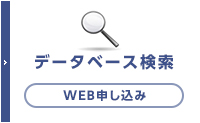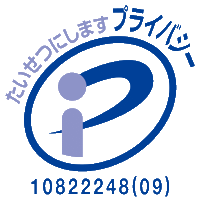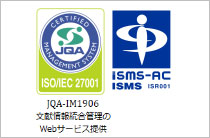ホームIMICライブラリMMWR抄訳2019年(Vol.68)麻疹排除に向けた進展 ― 全世界、2000年~20・・・
2019/12/06Vol. 68 / No. 48
MMWR68(48):1105-1111
Progress Toward Regional Measles Elimination — Worldwide, 2000–2018
麻疹排除に向けた進展 ― 全世界、2000年~2018年
2010年に、世界保健総会(WHA)は2015年までに麻疹コントロールを達成するために、3つのマイルストーンを設定した[1)1歳の幼児における麻疹含有ワクチン(MCV)の初回接種(MCV1)の定期予防接種率を国レベルで90%以上、地域レベルで80%以上に増加、2)世界の年間麻疹罹患率を人口100万人あたり5例未満に減少、3)世界的な麻疹による死亡率を2000年の推定値から95%削減]。2012年に、WHAは2020年までにWHOの6地域のうち5地域で麻疹を排除することを目的として、Global Vaccine Action Planを是認した。今回、2000年~2018年におけるWHAマイルストーンと地域での麻疹排除に向けた進捗状況を報告する。2000年~2018年にMCV1の推定接種率は世界中で72%から86%に増加した。MCV1接種率は、アフリカ地域(74%~75%)、東地中海地域(82%~83%)、南東アジア地域(88%~89%)では2016年以降に、また、ヨーロッパ地域(93%~95%)および西太平洋地域(95%~97%)では2008年以降に一定になっている。アメリカ地域の推定されるMCV1接種率は、2016年の92%から2017年には88%へ減少したが、2018年に90%に増加した。2018年には、世界中で118カ国(61%)がMCV1接種率90%以上を達成し、2000年の86カ国(45%)から増加したが、2012年~2013年の126カ国(65%)からは減少した。2018年には、世界中で1,920万人の乳児が定期予防接種サービスを介したMCV1接種を受けておらず、未接種の乳児が最も多かったのはナイジェリア、インド、パキスタン、エチオピア、インドネシア、フィリピンの6カ国であった。世界中の推定MCVの2回目接種(MCV2)率は2000年の18%から2018年には69%に増加したが、これは主にMCV2を供給する国の数が増加したことによるものである。2018年では37カ国の45の追加予防接種活動にて、約3億4,600万人が麻疹ワクチンを接種した。2000年から2018年の間に、報告された麻疹症例数は2000年の853,479例から2018年には353,236例に59%減少し、罹患率は人口100万人あたり145例から49例に66%減少した。一方、2016年に報告された症例数(132,413例)および罹患率(100万人あたり19例)に比較し、2018年には症例数および罹患率ともに増加した。2000年から2018年の間に、麻疹による推定死亡数は、535,600例から142,300例に73%減少した。同期間に、世界中で麻疹ワクチン接種により2,320万人の死亡を回避したと推定された。2018年末までに、82カ国(42%)で麻疹が排除されていることが確認され、2018年中に、オーストリア、バーレーン、北朝鮮、オマーン、シンガポール、スイス、東ティモールで排除が達成されたことが確認された。地域的な麻疹排除の目標を達成するには、定期予防接種システムの強化、感染リスク期間を少なくする、症例ベースサーベイランスの改善などの援助の関与が必要である。
References
- World Health Organization. Global eradication of measles: report by the Secretariat. Geneva, Switzerland: World Health Organization; 2010. <http://apps.who.int/gb/ebwha/pdf_files/wha63/a63_18-en.pdf>
- Dabbagh A, Laws RL, Steulet C, et al. Progress toward regional measles elimination—worldwide, 2000–2017. MMWR Morb Mortal Wkly Rep 2018;67:1323–9. <https://doi.org/10.15585/mmwr.mm6747a6>
- World Health Organization. Global measles and rubella strategic plan, 2012–2020. Geneva, Switzerland: World Health Organization; 2012. <https://s3.amazonaws.com/wp-agility2/measles/wp-content/uploads/2017/01/Measles-Rubella-Strategic-Plan.pdf>
- Brown KE, Rota PA, Goodson JL, et al. Genetic characterization of measles and rubella viruses detected through global measles and rubella elimination surveillance, 2016–2018. MMWR Morb Mortal Wkly Rep 2019;68:587–91. <https://doi.org/10.15585/mmwr.mm6826a3>
- Simons E, Ferrari M, Fricks J, et al. Assessment of the 2010 global measles mortality reduction goal: results from a model of surveillance data. Lancet 2012;379:2173–8. <https://doi.org/10.1016/S0140-6736(12)60522-4>
- World Health Organization. Country slides (measles). Geneva, Switzerland: World Health Organization; 2019. <https://www.who.int/immunization/monitoring_surveillance/burden/vpd/surveillance_type/Country_slides_measles.pptx?ua=1>
- Patel M, Lee AD, Clemmons NS, et al. National update on measles cases and outbreaks—United States, January 1–October 1, 2019. MMWR Morb Mortal Wkly Rep 2019;68:893–6. <https://doi.org/10.15585/mmwr.mm6840e2>
- World Health Organization. Global routine immunization strategies and practices (GRISP): a companion document to the Global Vaccine Action Plan (GVAP). Geneva, Switzerland: World Health Organization; 2016. <https://apps.who.int/iris/bitstream/handle/10665/204500/9789241510103_eng.pdf;jsessionid=C44DB0777FEA617956F652845E83415A?sequence=1>
- World Health Organization Regional Office for Europe. Tailoring immunization programmes. Copenhagen, Denmark: World Health Organization Regional Office for Europe, 2019. <http://www.euro.who.int/en/health-topics/disease-prevention/vaccines-and-immunization/publications/2019/tip-tailoring-immunization-programmes-2019>
- World Health Organization. Immunization agenda 2030. Geneva, Switzerland: World Health Organization; 2018. <https://www.who.int/immunization/immunization_agenda_2030/en/>
Copyright © 2013 International Medical Information Center. All Rights Reserved.












